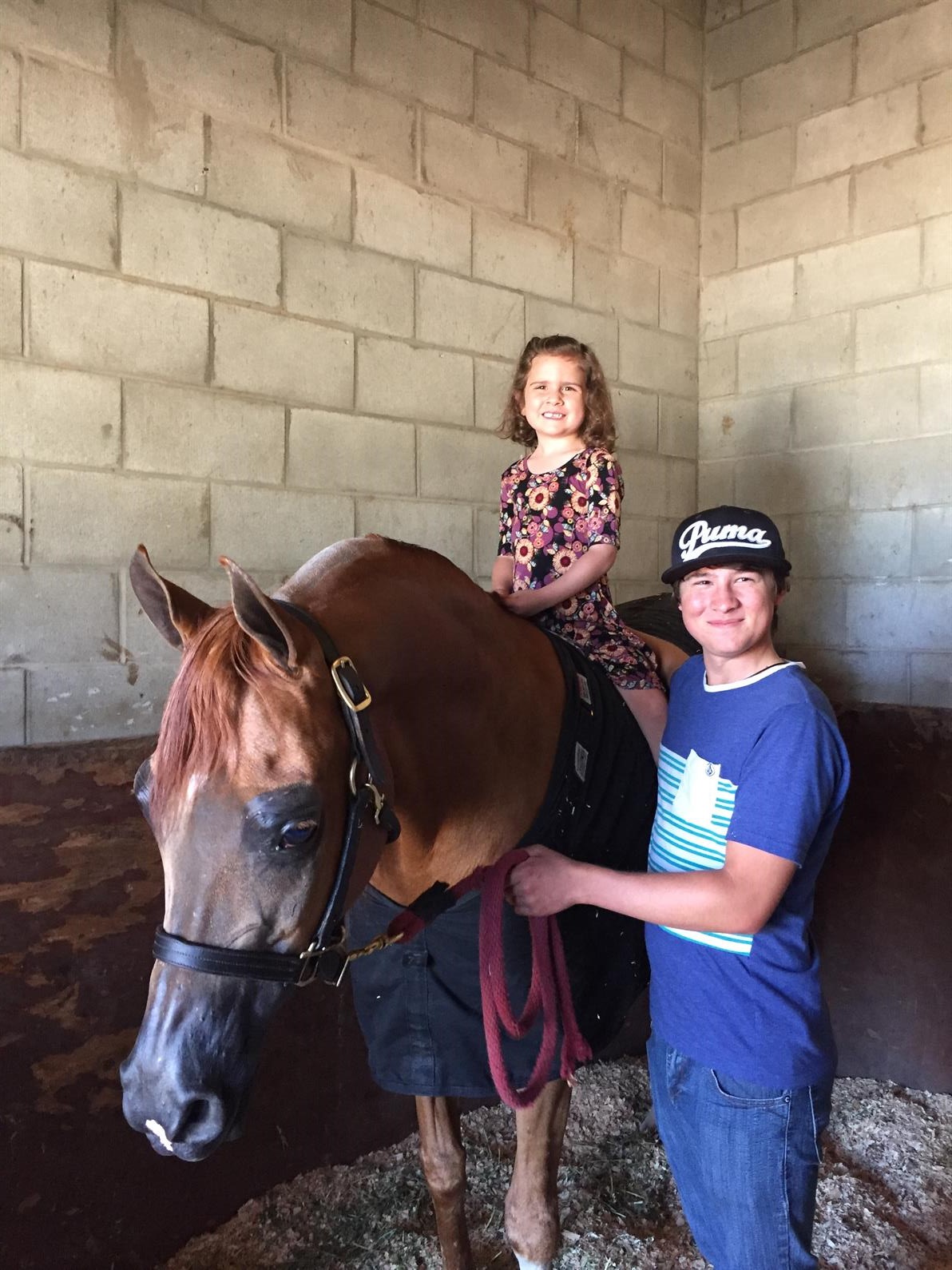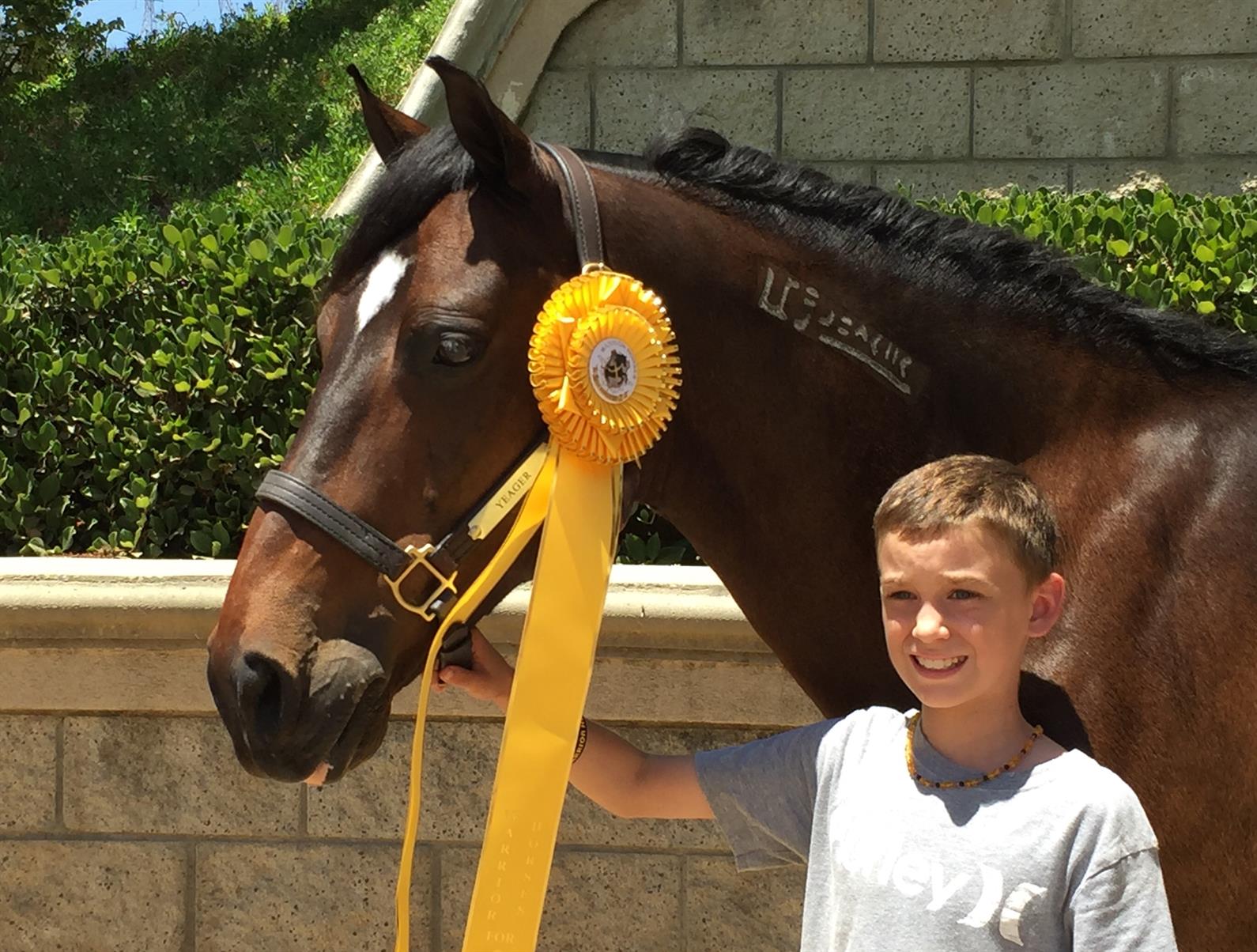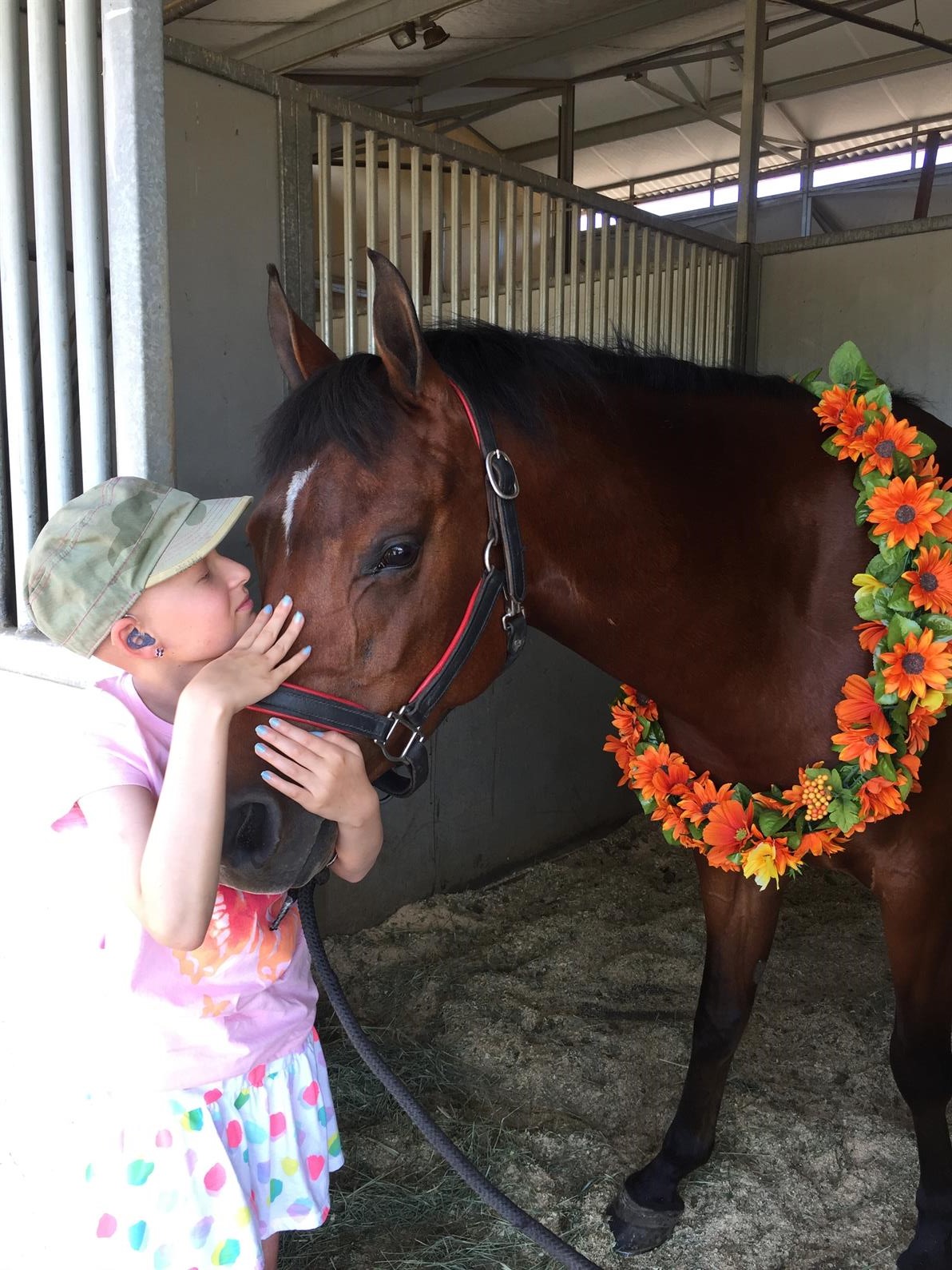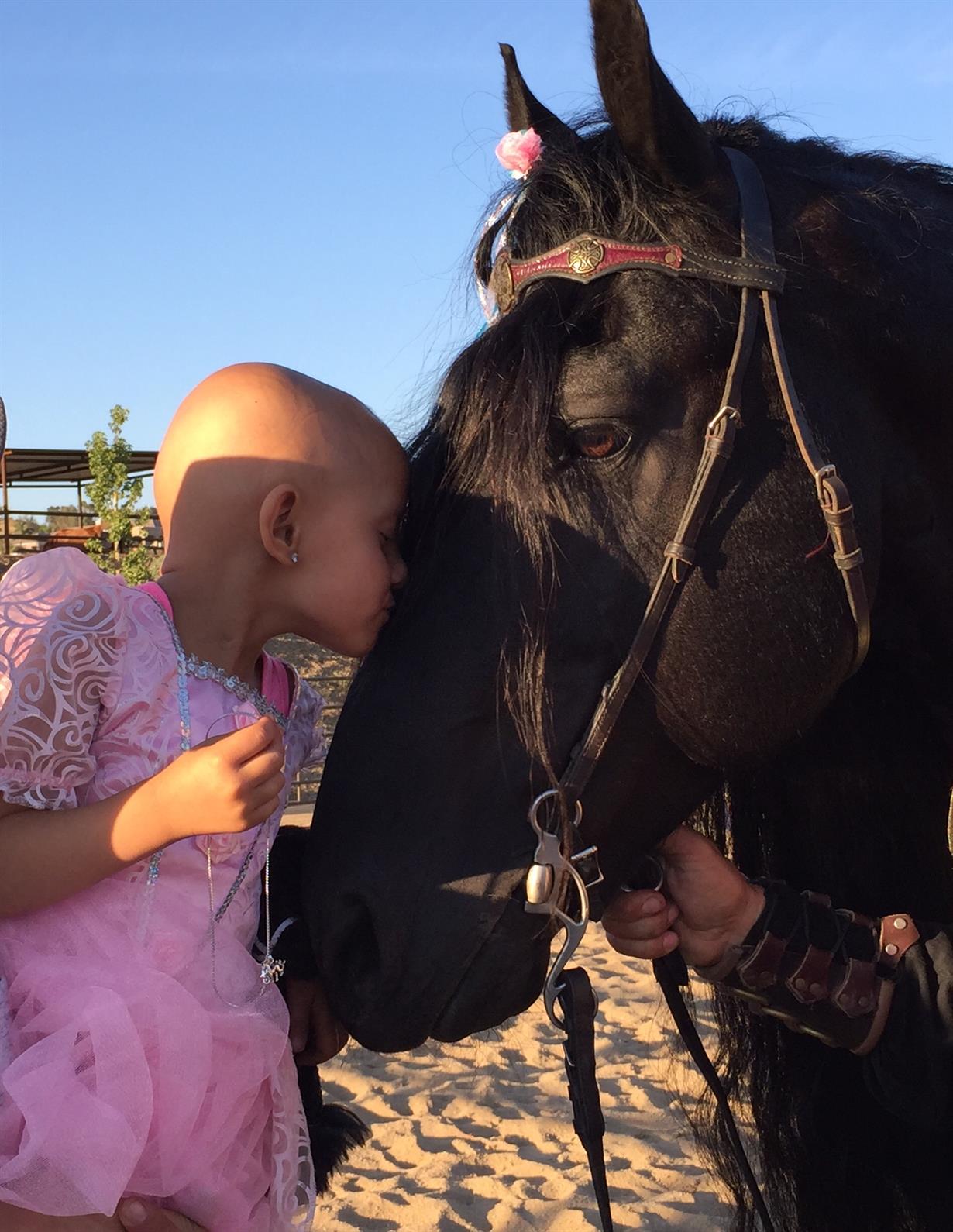Ryan Melendez knows a lot about the comfort and strength people derive from their connection with horses.

Ryan, the son of judge and trainer Bill Melendez and rider Kristal Raiger, grew up riding and showing Arabian horses. After he was diagnosed with Very High Risk Acute Lymphoblastic Leukemia in 2015 at age 17, the younger Melendez found that the equestrians and horses in his life supported him and gave him a welcome escape from the stresses of his treatment.
“Horses have always been a great therapy for me, and there are a lot of great people in the horse industry,” Melendez, now 20, recalled. “When I was diagnosed with cancer, my mom would put posts on Facebook to keep everyone in the loop with what was going on, and within the first month of being diagnosed I had received hundreds of get-well cards and things to help me get through my treatment. They held a big fundraiser at U.S. Nationals. It was really special and impactful to see how much horse people care about people inside their community.
“My horses, of course, were an outlet for me to escape what I was going through.”
“About five months after Ryan was diagnosed, one of his trainers, Jessica Bein, allowed him to ride one of her horses in the freestyle reining at Scottsdale,” recalled Raiger. “Ryan enjoyed reining and being with the horses because it was something he could control and also win at. It was something that gave him the drive to continue to fight. He’d still show up in the show ring and compete. It was always in his blood to compete, and that’s served him well in his cancer fight.”
Melendez’s own experience was the inspiration behind Warrior Horses, the 501(c)(3) charity he founded last year. The charity raises funds for the Leukemia and Lymphoma Society while also matching “warrior horses” with “warrior kids”—children undergoing treatment for cancer. To participate in the Warrior Horses program, an owner nominates a horse and begins fundraising toward a goal of $1,000 donations to LLS. Once the owner raises $1,000, the horse is considered a fully funded Warrior Horse and is eligible for matching with a Warrior Kid.

That’s when the fun begins, both for the horse’s connections and the Warrior Kid. As the Warrior Horses website puts it, “Once matched with their horse, the Warrior Kid will receive special access to his/her Warrior Horse, through direct connection with the rider/owner. The Warrior Kids will get to follow their Warrior Horse throughout the year, receiving updates, their show schedule, photos of their Warrior Horse showing, and, at times, the ability to watch the live feed of their Warrior Horses battling in the show ring.”
Special Warrior Ribbons also are awarded to Warrior Horses at national competitions, and the horses’ Warrior Kids receive both the ribbon and a photo. Best of all, Warrior Kids who are able can also meet their Warrior Horses in person.
“I feel like that experience allows them to escape all the scary things that go on in the hospital, like it did for me,” Melendez said. “I was one of the older patients at my hospital by quite a few years, because a lot of the cancers seem to hit kids in their earlier years of life. Just having the opportunity to be around animals, I feel like that has a really big impact. It’s interesting: if they haven’t been around horses or any large animal before, a lot of times they’ll be a little timid and nervous around the animal. But after they give them a carrot or something, they’ll get this big smile on their face and just become instantly attached, and all that fear kind of goes away. It truly helps build up their confidence. Seeing that connection being made between the Warrior Horse and Warrior Kid really is remarkable.

(Courtesy of Warrior Horses)
“All the Arabian horses I’ve ever been around, they just seem to connect with people on a more personal level,” he continued. “It’s almost like they have a sense of when someone is in pain or really needs them—they just seem to understand somehow, and they’re very personable. In my mind, they give off the ideal of a Warrior Horse. But, really, any horse is therapeutic!”
Although Warrior Horses began in the Arabian community due to Melendez’s connections there, he emphasizes that the program is open to horses and ponies of all breeds, and a horse doesn’t have to be a show or competition horse in order to participate.
The Warrior Horses program currently has about 300 participating horses, and about 200 of those have been matched so far with Warrior Kids.
“Pretty much everybody who owns a horse has a huge heart, and they want to share their horses with people, especially for young kids who are battling a horrible disease,” said Raiger.
The Health Insurance Portability and Accountability Act, which protects the privacy of patients’ medical information, limited Warrior Horses’ ability to identify eligible children through their physicians and hospitals, but the California-based charity recently began expanding its reach through a group of regional Arabian Horse Association volunteers who help identify children through personal connections and word of mouth.

(Courtesy of Warrior Horses)
“It’s easier for people in local areas to actually visit hospitals and explain the program,” said Raiger. “Last year, for example, with the help of a lady who asked if she could help, we started the Northwest Warrior horses, and she’s been able to match 10-15 Warrior Horses and Warrior Kids in that area. She reached out to children’s hospitals and was able to contact one family, and from there the word spreads like wildfire.”
Melendez is nearing the end of his own treatment and is currently enjoying his junior year at the University of Southern California, where he’s studying political science but hopes eventually to become a commercial pilot. He also kept showing Arabians during his treatment, most recently at U.S. Nationals, where he earned two reserve national championships on the five-year-old half-Arabian Khing of Diamonds, a horse Melendez’s family bred and owns.
The LLS recently honored Melendez’s work with Warrior Horses. The society presented Melendez with its Vision for Life Award, which recognizes creativity in developing new campaigns with national fundraising potential. It’s the second award that Melendez has received from LLS; he also was named an LLS National Man of the Year in 2017 in honor of his fundraising on behalf of LLS, which receives 100% of every dollar donated through the Warrior Horses program.
“It was great to be able to give back after everything that I’ve gone through,” Melendez said. “I’ve received so much support from everyone, and I felt that the only way I could repay them is to pay it forward to other people who are going through similar struggles. I was just happy that there was something I could do to make the world a little better.”


